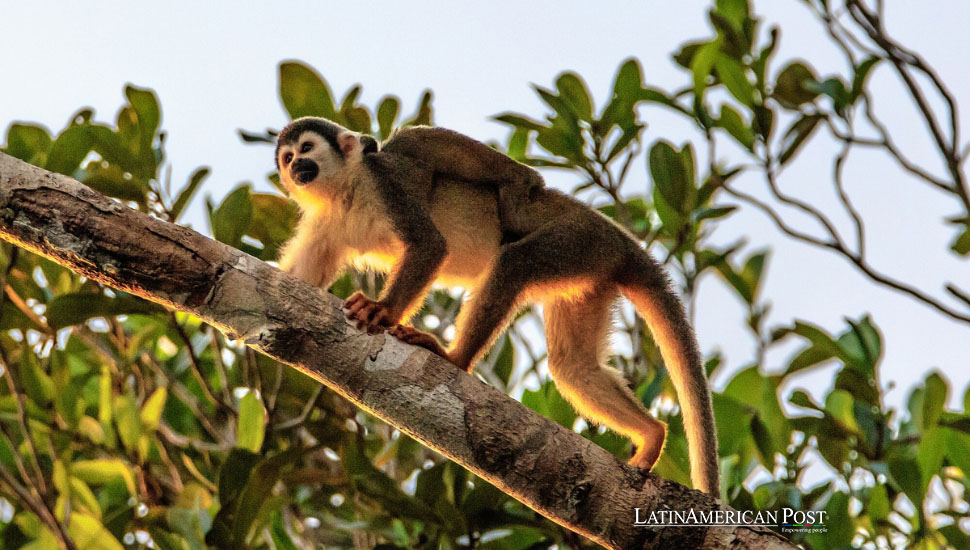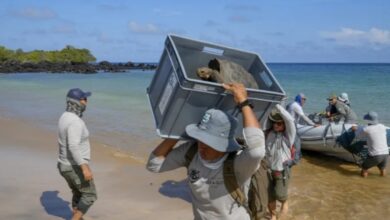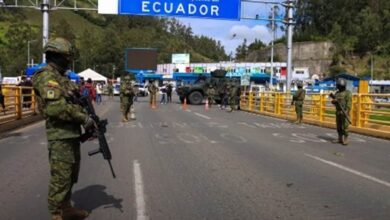Ecuador’s Biodiversity Initiative Identifies Key Biodiversity Areas

Ecuador’s pioneering KBA project, covering over 450,000 square kilometers, underscores democracy’s role in safeguarding biodiversity. However, the approach to conservation reflects broader Latin American struggles, blending ecological preservation with democratic values and participatory governance.
In recent developments, Ecuador has made a monumental stride in environmental conservation, identifying 125 Key Biodiversity Areas (KBAs) and protecting over 450,000 square kilometers of land and marine environments. This initiative, encompassing the majestic mountain ecosystems and the iconic Galápagos Islands, represents more than a mere conservation effort; it embodies the democratic ethos that should underpin environmental governance, especially in Latin America.
The project, spearheaded by BirdLife International and executed with local partners like the Fundación de Conservación Jocotoco, has pinpointed 878 flora and fauna vital for Ecuador’s ecological health. The approach reflects a comprehensive understanding of the importance of diverse ecosystems, from continental highlands to insular marine expanses. Yet, this is not just an environmental endeavor; it’s a democratic exercise, integrating the territories and wisdom of ancestral communities and promoting open, participatory decision-making processes.
With its rich biodiversity and complex social tapestry, Latin America is at a crossroads. Countries across the region face the dual challenge of preserving their unique natural heritage while fostering democratic principles. Ecuador’s KBA project exemplifies how these goals can align, offering lessons for neighboring nations grappling with similar issues.
The Amazon rainforest’s plight in Brazil illustrates the tension between economic interests and environmental conservation, often mired in political controversy. Like Ecuador’s KBAs, the Amazon’s preservation necessitates a democratic approach that respects indigenous rights and promotes sustainable development. Meanwhile, the push for protecting Patagonian territories against industrial encroachment in Chile echoes Ecuador’s emphasis on ecosystem and species conservation, underlining the necessity of democratic engagement and environmental stewardship.
The Path to Harmonizing Democracy and Conservation
However, the path to harmonizing democracy and environmental conservation is fraught with challenges. Conflicts over land rights and natural resources underscore the complexities of implementing democratic conservation initiatives in countries like Bolivia and Peru. These nations can learn from Ecuador’s methodology, which integrates scientific research with community engagement and policy advocacy, ensuring that conservation efforts are both ecologically sound and democratically grounded.
Ecuador’s initiative, while laudable, also exposes the inadequacies in democratic practices elsewhere in the region. For instance, Venezuela’s environmental policies have often been criticized for lacking transparency and public participation, highlighting the need for more democratic governance in environmental decision-making. Similarly, Colombia’s deforestation and land degradation struggles call for a more inclusive, democratic approach to conservation, akin to Ecuador’s KBA project.
Ecuador’s conservation strategy has profound democratic implications. By incorporating diverse stakeholders and prioritizing endangered species and ecosystems, the project serves as a model for citizen-driven environmental governance. It demonstrates how conservation can be a democratic process, with open access to information and collaborative decision-making at its core.
A Beacon for Sustainable and Democratic Conservation
Moreover, the KBA project in Ecuador has set a benchmark for integrating traditional knowledge and scientific research in conservation efforts. This approach enhances the effectiveness of environmental protection and strengthens the democratic fabric by valuing and incorporating the voices of indigenous and local communities.
As Latin American countries navigate the challenges of environmental conservation and democratic governance, Ecuador’s KBA project stands as a beacon. It shows that effective conservation is inherently democratic, requiring transparent, inclusive, and participatory processes. This project is not just about saving species or ecosystems; it’s about reaffirming the principles of democracy in environmental governance.
Also read: Restoring Floreana is a Monumental Conservation Endeavor in Ecuador’s Galápagos Islands
While Ecuador’s conservation efforts have made significant strides in protecting its biodiversity, the true success of the KBA project lies in its democratic ethos. It serves as a crucial reminder that preserving our planet’s natural heritage must go hand in hand with promoting democratic values. As Latin America continues to face environmental and political challenges, the lessons from Ecuador’s KBA initiative offer a roadmap for achieving sustainable and democratic conservation outcomes across the region.





